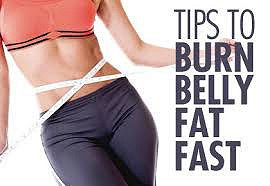To successfully lose weight, you need to burn more calories than you consume. One way you can do this
is though exercise. People argue that exercise is not effective for weight loss alone. Overall, exercise is
important for health as it lowers your risk for many diseases such as diabetes, obesity, osteoporosis, and
heart disease as well as some cancers. Exercise is also important for the mind as it helps you to de-stress
and unwinds.
What happens when you burn fat during exercise?
People who are obese have a lot of fat surrounding their muscles. One pound of fat weighs the same as
one pound of muscle – one pound. The difference is that while a pound of muscles takes up less room, a
pound of fat takes up more. Therefore, muscle that is gained through training is only firmer but does not
increase in size.
Our bodies have a certain number of fat cells and will remain unchanged if the calories we consume
equal the ones we utilize every day. Consume more calories than you utilize, and the size of your fat
cells increases. Burn extra calories, and the size of your fat cells decreases.
Where does all the fat go during exercise?
The answer lies in respiration. About 84% of our fat molecules are exhaled as carbon dioxide, the rest
leave the body as water through sweat, tears, urine and other liquids. Exercise increases both
respiration and calorie burn, making it the best way of shedding pounds.
Here are some tips you need to know when exercising to trim that fat:
1. Do Cardio
It is known that you can elevate your rate of metabolism for 24 hours after exercising by adding
one feature to your exercise regimen: intervals. All you need to do is inject brief periods of
intense effort into your aerobic activity (running, walking, cycling, and swimming). These regular
bursts of intensity resets your metabolism rate a little higher during your workout and takes
hours to slow down again.
The more work you give your body to do, the more calories you burn
to get the work done on your body. Try this supplement smoothie
If you’re engaging in a 30 minute exercise e.g. walking, try adding a burst of jogging for 30
seconds every 5 minutes. As you become fitter, you can increase the interval length to a minute
and your walking period to 4 minutes. The biggest boost will leave you breathing hard.
2. Work On Strength
There is little you can do to the metabolic needs of your heart, kidneys and liver as they demand
energy non-stop. Your muscles however, can have their metabolism altered. The more you
exercise, the bigger they grow. And they will burn more calories and fat every time. Click here for product
